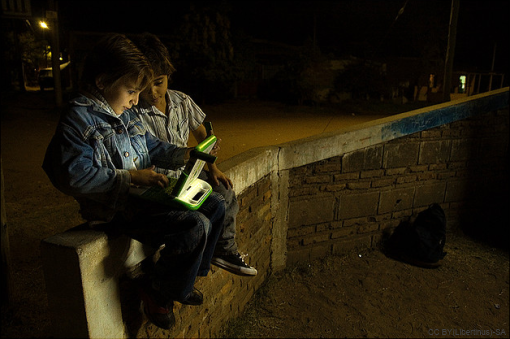The Problems with Argentina’s Proposed Grooming Law
by Digital Rights LAC on July 17, 2013
The proposed bill, which has been postponed following questions from civil society, has serious problems regarding its vagueness and broadness.
By Eleonora Rabinovich, Association for Civil Rights.
Argentina’s House of Representatives has begun to debate a proposed bill that would criminalize the act of “grooming.” The proposed codification of this crime presents many conflicts with the core principles of constitutional guarantees that should govern criminal law, and thus, it has been rejected by civil society organizations and activists.
Fortunately, due to questions aboutthe proposed bill—which has been approved by the Senate and was set to be approved by the House last month—the legislation was postponed. According to congressional sources, a new round of debate is due to begin.
The term “grooming” describes the practice by which an adult tries to win the friendship or trust of a child or adolescent through the Internet, with the goal of being able to sexually abuse that person. The bill under question proposes the following addition to Article 131 of Argentina’s Penal Code: “A person who contacts an underage person by means of electronic communication, telecommunication, or any other technology for transmitting information, with the goal of committing any crime against that person’s sexual integrity, will be sentenced to a period of six months to four years in prison.”
As the Asociación por los Derechos Civiles has warned, this clause presents a number of problems, which can be summed up in its extraordinary vagueness and broadness.
For example, the clause criminalizes a mere act of “contact” with a minor; this means that it punishes a preparatory act that happens prior to the execution of the crime that the offender seeks to achieve. Whether an act is preparatory for another crime is purely subjective and will be extremely difficult to prove. This could open the door to distinct problems during a criminal investigation, as some experts have already testified. For instance, the Council of Europe Convention on the Protection of Children against Sexual Exploitation and Sexual Abuse has stipulated that the crime should only be included in the Penal Code if the offender’s suggestion that the minor meet with him “has been followed by material acts leading to such a meeting” even if no actual abuse has taken place.
Furthermore, the proposed bill fails to specify the age of the minor, which ought to be consistent with the existing body of criminal law that addresses the consent of minors. The proposed punishment also appears disproportionate, as it specifies the same level of punishment as the crime of abuse does, but for a preparatory act. Finally, Congress has failed to duly justify the necessity of adding a new sex crime to the Penal Code, distinct from the sex crimes that are already addressed.
Other voices have also spoken against this proposed bill: Representative Manuel Garrido, a former prosecutor, presented a paper enumerating the problems with the bill. Expert Beatriz Busaniche of the FundaciónVíaLibre has warned that “despite the proposal’s good intentions, a law of this nature establishes an ineffective legal framework for protecting minors in Argentina and puts the framework for civil rights on the Internet at risk . . . To punish the mere act of contacting [a minor] with a vague idea of intent goes against the principles and guarantees of our legal system and displays once again that it is easier to legislate by looking at the day’s news than the essential guides to criminal law.”
As the ADC has maintained, “the creation of a new type of crime is a deed of such significance that it always deserves sufficient debate. This does not mean denying the threats and challenges that can exist for children and adolescents due to the use of information technology, but rather, considering and seeking responses that effectively achieve their objective and adhere to the principles that govern our constitutional system, without demonizing the Internet.”
Eleonora Rabinovich, Director of the Freedom of Expression Project at the Association for Civil Rights (ADC)
E-mail: erabinovich (at) adc.org.ar






